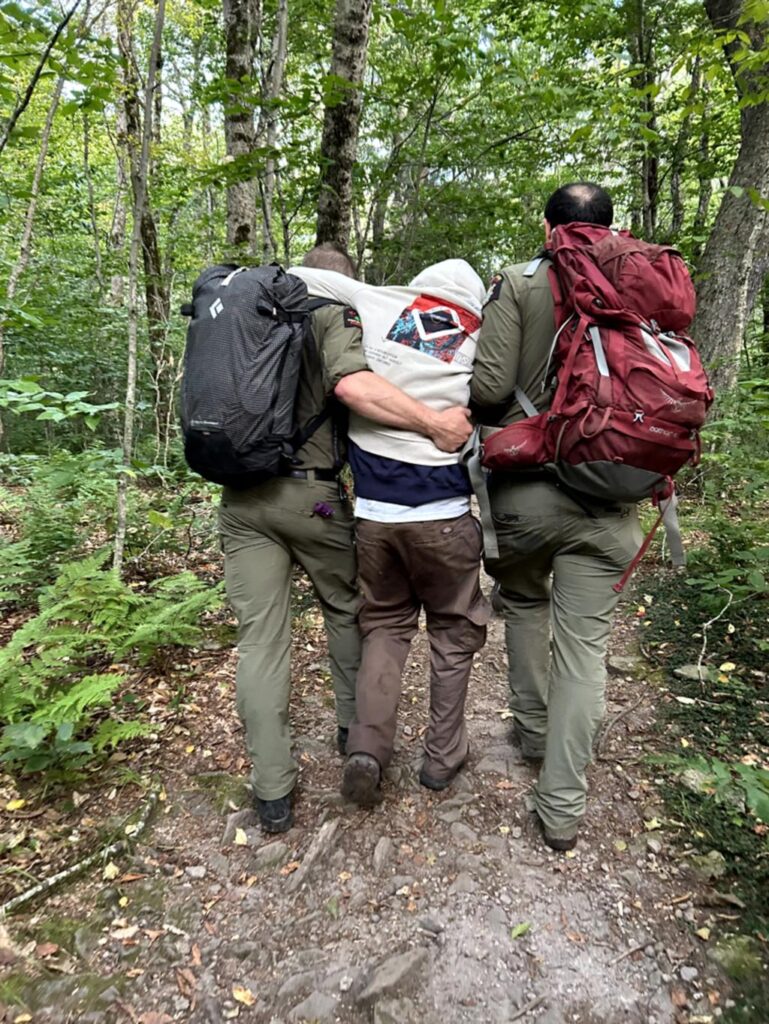That’s one long trip!
A quad of boneheaded hikers had to be rescued by forest rangers after they suffered such a “debilitating psychedelic mushroom high” that they got lost in New York’s Catskill Mountains last Friday.
The intrepid rescuers with the New York State Department of Environmental Conservation dedicated their evening to scouring the Slide Mountain Wilderness for the fried foursome, who sought help via a satellite text around 5 p.m., the department said.
The panicked hikers admitted to eating psychedelic mushrooms and explained that one of them was in the midst of “a debilitating high,” according to the DEC.
The area where the lost group took shelter was along an interconnected trail hike with elevations as high as 2,600 feet and lined with steep cliffs and precarious drops, James McCartney, president of the Police Benevolent Association of New York State, explained in a statement.
Nearly two hours later, the rangers had scaled the trail and helped the forlorn hikers back down with aid from the Pine Hill Fire Department.
One of the stoners had to be supported by two of their valiant rescuers as they stumbled back through the woods.
At some point during their elongated trip, one of the hikers realized they’d lost their car keys, so forest rangers also gave them an extra lift to their rental lodge where they could safely ride out the rest of their high.
The following day, one of the rangers hiked back up the trail and recovered the group’s sling bag they’d mistakenly placed “under a log in tall ferns,” according to the DEC.
“This level of dedication, at the start of a busy Labor Day weekend, is representative of the
commitment shared by our Forest Ranger members. The PBA of New York State is proud to
highlight our Forest Rangers and all members’ continued dedication to public safety in the face
of difficulty and danger,” McCartney said.
Psilocybin mushrooms, more commonly known as magic mushrooms, can induce hallucinations that toy with the consumer’s senses, including their basic perception of colors and shapes, according to the National Institute on Drug Abuse.
Read the full article here
